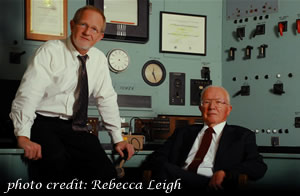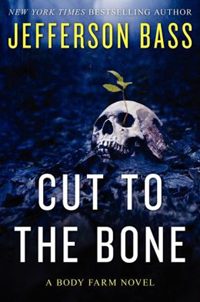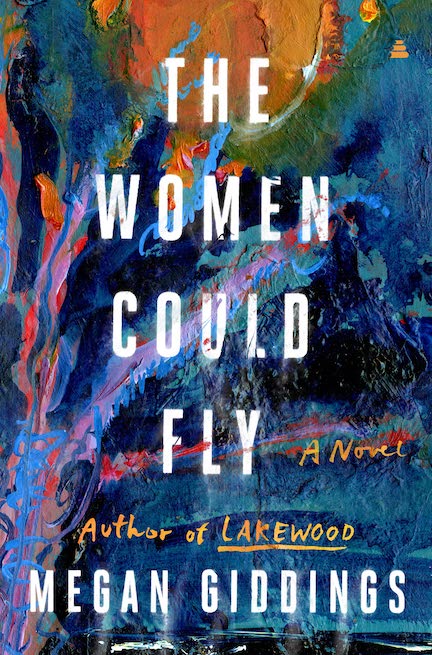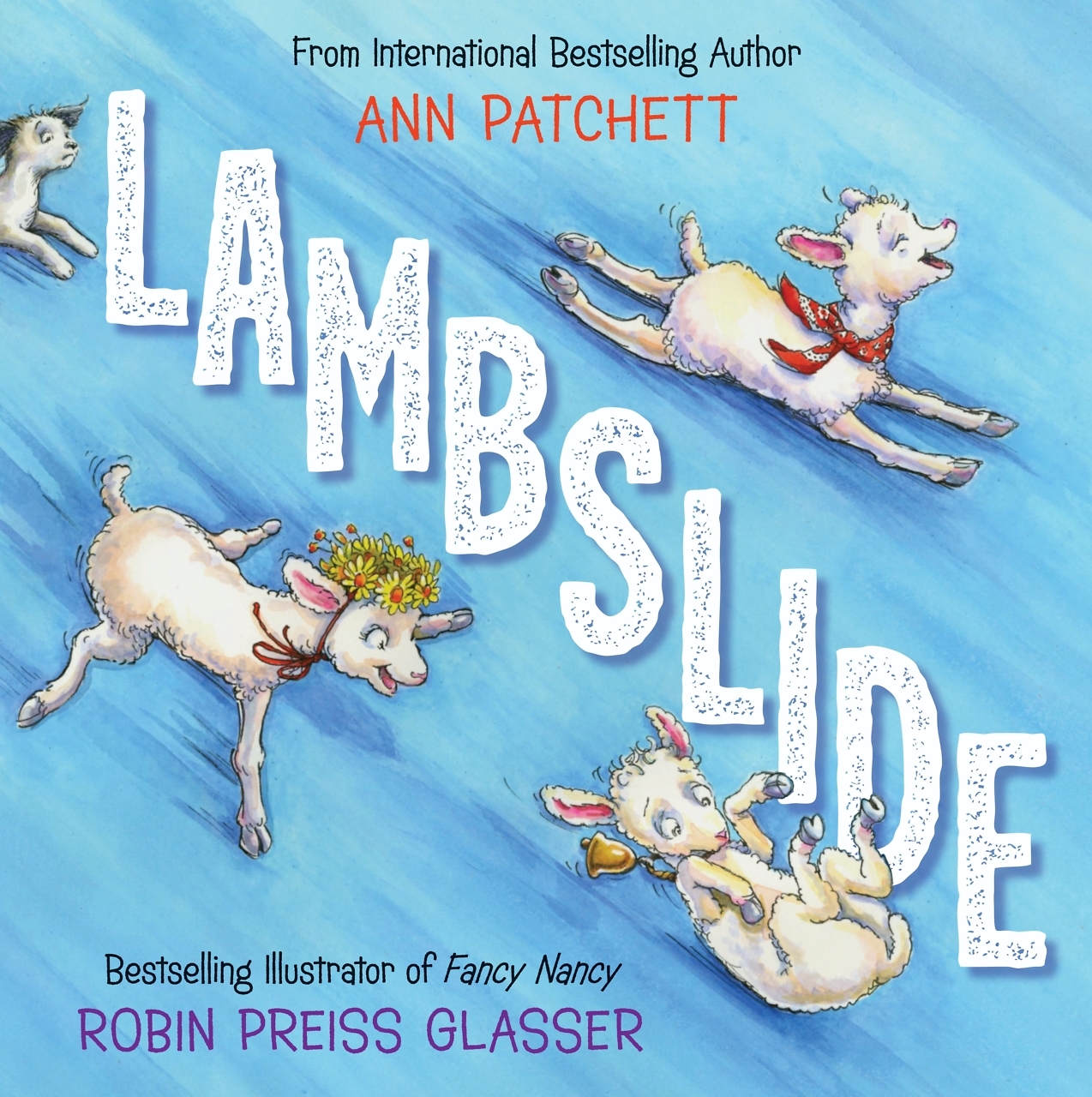Connecting the Bones
Jon Jefferson and Bill Bass talk about the Body Farm, murder mysteries, and how human bodies turn into soap
It is a place very few people have ever visited and one that most people wouldn’t want to go. Its proper name—the Forensic Anthropology Center—is virtually unknown by the public. But called by its nickname, it is one of Tennessee’s most famous places. The Body Farm, a two-acre plot of land in Knoxville, was founded by University of Tennessee anthropologist Bill Bass over a quarter century ago and is now renowned as the hub of some of the most important forensic science ever done. Because of the work of Bass, his colleagues, and his students, police agencies around the world have acquired an array of new methods that allow them to determine the time and cause of a victim’s death. By studying human decay as it actually happens in the heat of summer or the cold of winter, Body Farm scientists help solve real crimes and put real killers in prison.
Forensic science is not, however, the only field to which Bass has contributed. Since 2003, he and writer Jon Jefferson have collaborated on two nonfiction books about Bass’s work, as well as five novels featuring Bass’s alter-ego, Bill Brockton. The novels, written by the two men under the pseudonym Jefferson Bass, are, like the scientist and events that inspire them, set in East Tennessee, particularly Knoxville, the University of Tennessee, and the surrounding towns and countryside. Each features a murder mystery solved by Brockton and his associates using the real findings of the often gruesome Body Farm research. Bass and Jefferson recently discussed their work with Chapter 16.
 Chapter 16: Dr. Bass, after four novels featuring the fictional Bill Brockton, do you find yourself having to point out to people that you and Brockton are not the same person?
Chapter 16: Dr. Bass, after four novels featuring the fictional Bill Brockton, do you find yourself having to point out to people that you and Brockton are not the same person?
Bass: In the first fictional book, the one called Carved in Bone, Dr. Brockton goes to a cockfight, and he chews snuff and things like that. And people who know me have called and said, “I know that isn’t you because you don’t do that.” So there are differences. I mean, Dr. Brockton is a character very much like me, but does things that I wouldn’t do.
Jefferson: One obvious difference is that Dr. Brockton is single, and Dr. Bass is happily married. And as a character he is free to have more romantic adventures that way. There is a real blend of Dr. Bass and some of my [own] traits. Would you say that is fair, Bill?
Bass: Yes, he is an amalgamation of both of us.
Chapter 16: Do you ever have trouble keeping the two separate when you’re writing?
Jefferson: In this latest book, The Bone Thief, there was one place in the manuscript, when I was writing along, that I actually wrote Dr. Bass instead of Dr. Brockton. And it wasn’t until before it went to press that anybody caught that. So mostly it’s not hard to keep the fictional Dr. Brockton separate from the real Dr. Bass, but occasionally it gets a little blurry in the wee small hours when I have been writing a long time.
Chapter 16: Are there other recurring characters in the books that are based on real people?
Jefferson: Many. Art Bohanon, who is a recurring character is, in fact, a nationally renowned fingerprint expert. And we use his real name. He is the only character, so far, who appears in both our nonfiction books and the novels under the same name. So he has been in all seven books.
Bass: There is one of my doctoral students, a man named Arpad Vass, who works over in Oak Ridge. We have brought him into at least two or three of the books.
Jefferson: Arpad has done interesting work. He has spent years focusing on the chemistry of human decomposition. He has been analyzing the chemicals that bodies give off as they decay, and they are using those for a couple of purposes. One, to determine—either from the tissue samples from the body itself or the soil samples from the ground where the body decayed—to read the ratio of chemicals like a clock to tell how long somebody has been dead. The other is to detect those chemicals coming out of a clandestine grave. He has developed a gizmo he calls a sniffer that can, in fact, sniff out buried bodies much the way a cadaver dog would do.
Chapter 16: The Body Farm books, unlike most television shows, are known for accurately portraying forensic work. Is this a conscious effort on your part to counteract the so-called CSI effect, in which people, including juries, end up with unrealistic expectations for police work?
Bass: Yes. Jon does the fiction in the stories, but the science is real. You have the CSI effect, and if the police aren’t doing it the way people who’ve looked at CSI think it out to be done, they think there’s something wrong with the police department.
Chapter 16: It’s unusual for a writing team to do a series of mysteries. How did the two of you meet and decide that writing mysteries would be a good idea?
“When we unwrapped him, he was in such good condition you could look at him and tell exactly who he was. Every whisker was in place, and he was literally a cake of soap.”
Bass: One day the phone rang, and this man from Oak Ridge named Jon Jefferson called and said that he was interested in doing a video on the Body Farm and wondered if I’d be interested. I said sure. And Jon and I got along very well, and this was about the time I was retiring from teaching at UT. Students had asked me for years when I was going to write a popular book. Well, I found out that Jon was a writer and was very knowledgeable about science and I approached him, and we talked about it for three or four months. We finally decided to do a nonfiction book. The first one we did was called Death’s Acre, a history of the Body Farm. Jon and I are not alike, but we got along very well, and Jon expressed a desire to do fiction.
 Jefferson: When we first started talking about fiction, Bill was actually kind of skeptical that there would be any market for this, and I said, “Oh, come on, people love you as a real-life character.” One of the things that appealed to me about fictionalizing Dr. Bass into a crime-novel hero is that he’s up to his elbows in death and dismemberment, but he’s got this sunny disposition, and that really helps make it bearable. So many heroes in crime fiction are very tortured souls that you wouldn’t necessarily want to be in the same room with, much less walk down dark alleys with. But if you’re walking down the dark alley with somebody whose personality is sunny, and they can help take the edge off of it somewhat, then people will like that, and they seem to have.
Jefferson: When we first started talking about fiction, Bill was actually kind of skeptical that there would be any market for this, and I said, “Oh, come on, people love you as a real-life character.” One of the things that appealed to me about fictionalizing Dr. Bass into a crime-novel hero is that he’s up to his elbows in death and dismemberment, but he’s got this sunny disposition, and that really helps make it bearable. So many heroes in crime fiction are very tortured souls that you wouldn’t necessarily want to be in the same room with, much less walk down dark alleys with. But if you’re walking down the dark alley with somebody whose personality is sunny, and they can help take the edge off of it somewhat, then people will like that, and they seem to have.
Chapter 16: How do you divide the writing duties?
Bass: On the fictional books, Jon comes up with the story, and I do the science. And the forensic anthropology is based on cases that I’ve done in the past. The first one, Carved in Bone, we had a woman in a cave, and I said, “Okay, Jon, is it a dry cave or a wet cave?” Jon chose a wet cave. Now, that changes the whole sequence of what you look at when you’re looking at a body. In a dry cave, the body will mummify. If you’re in a wet cave, the soft tissue, the fat in the body, will turn into a soapy substance known as adipocere. I’ve done five or six of these cases, but the one that best fit the description of the woman in the cave was a man down on the Alabama border just north of Huntsville, who had a wife who wanted him dead. She hired two guys to do it and they killed him and put him in the basement of the house wrapped in plastic, and it happened to be a wet basement. When we unwrapped him, he was in such good condition you could look at him and tell exactly who he was. Every whisker was in place, and he was literally a cake of soap.
Chapter 16: Each of the books has a unifying theme. The Devil’s Bones deals with fire. In Bones of Betrayal you had radioactivity. Now, in The Bone Thief, you focus on the growing field of tissue and bone donation and transplants. Is there really a black market in bone and tissue?
Bass: Absolutely. I have done three court cases dealing with bodies that have been, let’s say mutilated, or changed, or parts of them have been taken off and sold before the individual was cremated. If somebody thinks their loved one has been shortchanged, they send me the cremation and I go through and analyze it. It’s surprising how much you can tell out of that, out of looking at a cremation and taking your time.
Jefferson: And in The Bone Thief, the main plot revolves around this undercover sting, in which the FBI enlists Dr. Brockton to help catch and bring down somebody who’s doing these black market sales of body parts. And in fact, in real life, the FBI uncovered such an operation. A guy who was in charge of all the bodies donated to a medical school out in Texas would falsify records and say this body was unsuitable for use and had to be cremated, when in fact he was selling them off. So we borrowed pretty freely from an actual investigation. In our book, we have the bad guys approaching Dr. Brockton because he has this ready supply of material at the Body Farm, and that part is completely invented. But the FBI has certainly been involved in these kinds of things, and also in arresting people who’ve been selling kidneys, from live donors of kidneys, to transplant recipients. Those are real issues. They’re not as rare as you might think or hope.
Chapter 16: Mr. Jefferson, the work of the Body Farm is obviously not for the squeamish. The books contain very detailed descriptions of autopsies, decay, dismemberment—all the things that can happen to bodies after death.
Jefferson: Or before, sometimes.
Chapter 16: Was it difficult for you to get used to the sights and smells of that kind of work?
“I was out there in late summer, and the smell was really strong, and some of the things I saw, the insect activity, and so on, were pretty gory. But it was fascinating to be witnessing that up close and to know how it was contributing to the solving of crimes.”
Jefferson: It really wasn’t. I was surprised. The first time I went out there I was doing research, kind of scouting for these videos that Dr. Bass mentioned. I ended up producing and directing two one-hour documentaries for the National Geographic Channel on the Body Farm. I went from never having set foot there to spending about eight weeks with a camera crew out there. The very first time I set foot there, maybe it was just because I’d been doing research and I was fascinated, but it just never really occurred to me to have a hard time with it. The fascination of it all trumped any discomfort I had. Sure, I was out there in late summer, and the smell was really strong, and some of the things I saw, the insect activity, and so on, were pretty gory. But it was fascinating to be witnessing that up close and to know how it was contributing to the solving of crimes, providing this base of research, knowledge, and data that’s used around the world to help find murder victims or identify murder victims or catch their killers. It was just such an opportunity to get to learn amazing things that I didn’t have the time or the energy to be bothered by the goriness of it.
Chapter 16: Any hints about upcoming adventures for Brockton?
Jefferson: We’ll probably talk a lot about the next book as we do a book tour for this one. That’s our usual pattern. That’s when we really have big chunks of time together to bounce ideas back and forth and kind of play with ideas. We do have a loose end or two from The Bone Thief, and I don’t want to give too much away, but we have some things to continue with from the last book or two. One of the ideas we’ve talked about would be finding bodies on the grounds of a boys’ reform school. Boys who’ve been sent away because they’re in trouble, and nobody much cares about them, and they end up going missing. There’s some real-life precedent for that. That’s one possibility, but we don’t know for sure if that’s where we’re going with it.
Bass: Also, is Dr. Brockton going to get married before the series stops?
Jefferson: Who knows? Who knows? We’ll duke it out on those kinds of things in the car on the way to Nashville or Atlanta.
Chapter 16: Any chances for a movie or television series based on the Body Farm books?
Jefferson: We’ve had a nibble or two on movie things, but nothing’s come to pass yet. We had a really solid bite for a TV series. Warner Brothers actually sent a contract to auction the rights to a dramatic CSI– or Bones-like television series. And literally as we were reviewing the contracts, this was a couple of years ago, the writers’ strike hit. By the time that was settled, for reasons we don’t quite understand—you know, Hollywood whimsical reasons—the momentum was gone. I think it would be a great TV series, there are so many layers that could come into play. You know, CSI has the police and that’s pretty much it. At the body farm you’ve got criminal cases involving law enforcement, you’ve got academic research, you’ve got ambitious or not-so-ambitious graduate students, and you’ve got undergraduates. You’ve got all these different worlds that collide, or that overlap, there in the anthropology department at the University of Tennessee. I think that would make an incredibly rich television series.
[This interview appeared originally on March 18, 2010.]
Jon Jefferson and Bill Bass will discuss the newest Body Farm novel at the twenty-fifth annual Southern Festival of Books, held in Nashville October 11-13. All festival events are free and open to the public.





